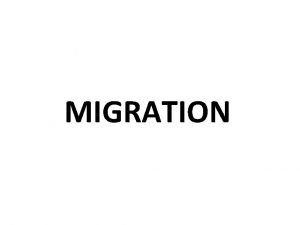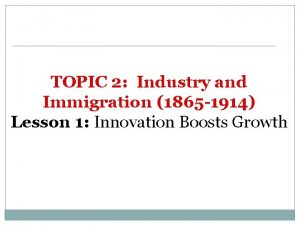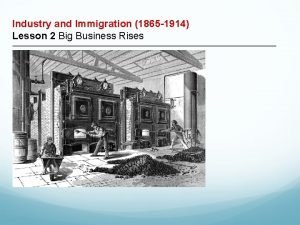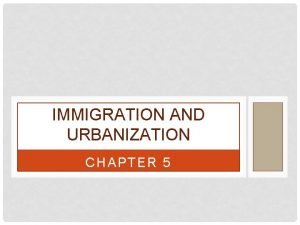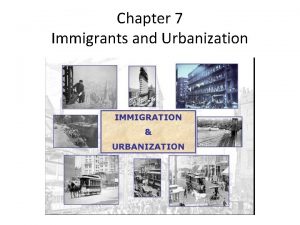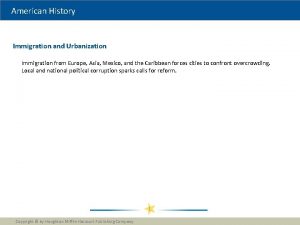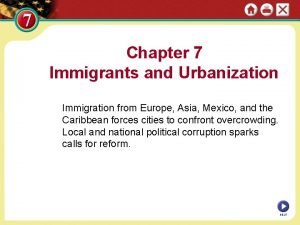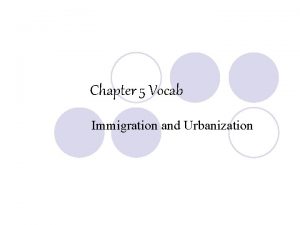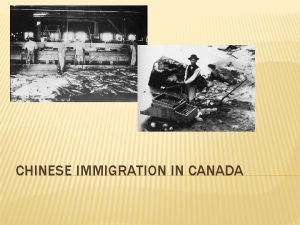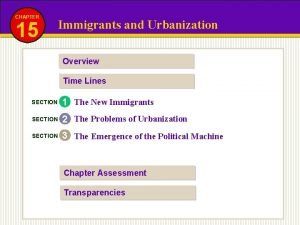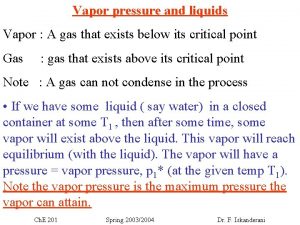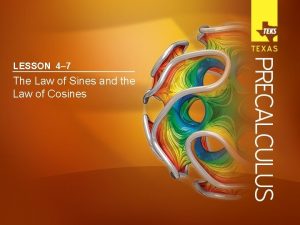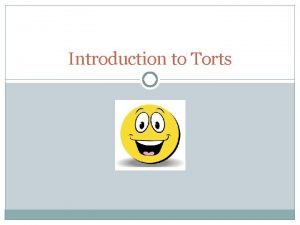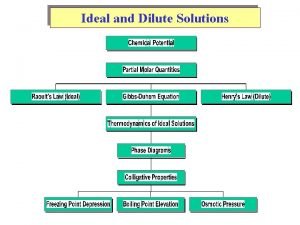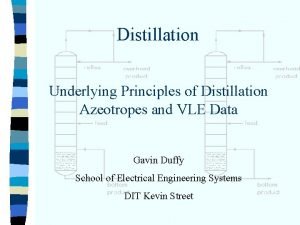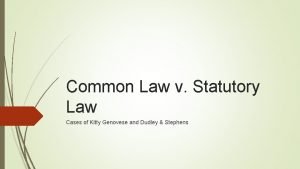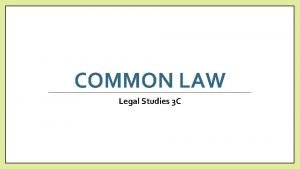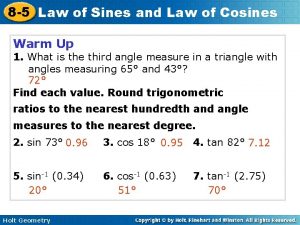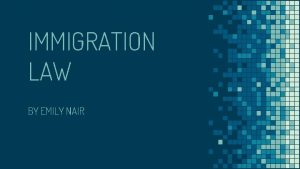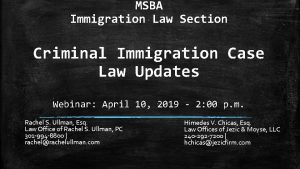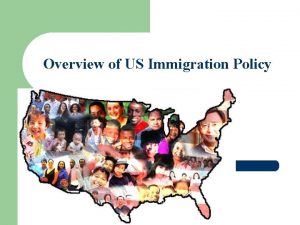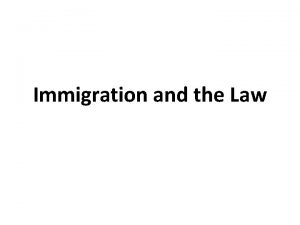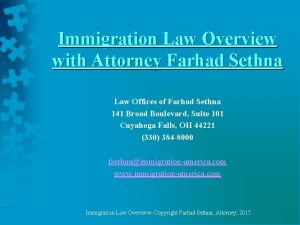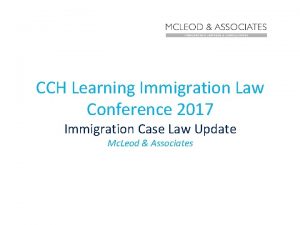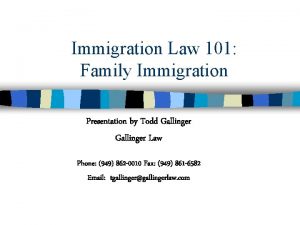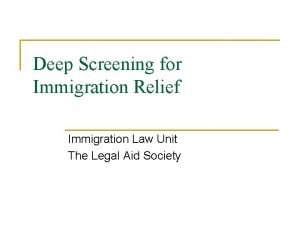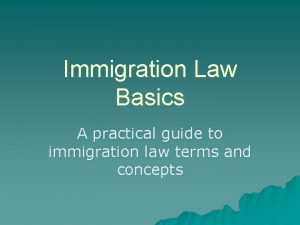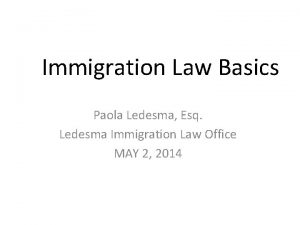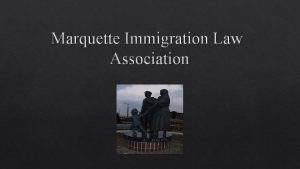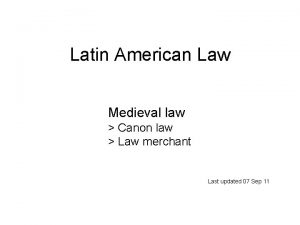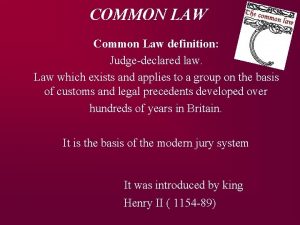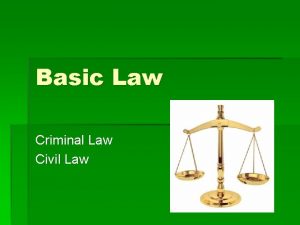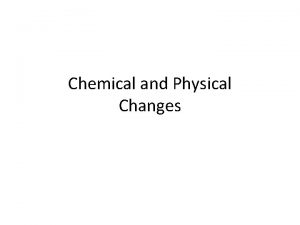OVERVIEW OF IMMIGRATION LAW AND CHANGES TO IMMIGRATION






























- Slides: 30

OVERVIEW OF IMMIGRATION LAW AND CHANGES TO IMMIGRATION POLICY

NATIONALLY 3. 5% of United States population is undocumented Undocumented Have legal status 45% OF UNDOCUMENTE D IMMIGRANTS HAVE US BORN CHILDREN 45% of Undocumented Immigrants have US born Children undocumented without US born children 66% OF UNDOCUMENTED IMMIGRANTS HAVE BEEN LIVING IN THE UNITED STATES FOR MORE THAN 10 YEARS Living in the United States less than 10 years Living in the United States for over 10 years

HOUSTON’S FOREIGN-BORN General demographics (Houston region) • >1. 4 million foreign-born individuals • 23% of the city’s population • 59% increase since 2000 (vs. 33% nationally) • Guatemalan and Honduran populations growing fastest, recently • 33% non-citizens; 350, 000 LPR’s eligible to naturalize • 407, 000 undocumented • 70, 000 refugees • Top countries of origin: • Mexico, El Salvador, Vietnam, India, Honduras, Philippines, China, Guatemala, Pakistan, Colombia, Nigeria, Korea, Taiwan, Venezuela

HOUSTON’S FOREIGN-BORN Economic impact • $117 B to area GDP & $32 B of spending power • $3 B in state and local taxes • $128 B in increased housing value • Generate $2. 5 B in business income Indicators of inequality • Foreign-born families earn $0. 74 to every US-born $1. 00 • Incomes lowest among Central American & Mexican families • Income gap in Houston is greater than in United States • 20% live below the poverty line

WHO’S WHO IN IMMIGRATION? Department of Homeland Security (DHS) • USCIS - U. S. Citizenship & Immigration Services o Asylum Office • ICE - Immigration & Customs Enforcement (“INS” pre-2011) o Enforcement and Removal Operations (ERO) o ICE Office of Chief Counsel (OCC) • CBP: Customs & Border Protection o Border Patrol

WHO’S WHO IN IMMIGRATION? Department of Justice (DOJ) • Executive Office of Immigration Review (EOIR) o Immigration Courts o Board of Immigration Appeals (BIA) • Civil Rights Division: o Office of Immigration Litigation (OIL) o Office of Special Counsel for Immigration-Related Unfair Employment Practices Department of State • Consular Affairs (U. S. Embassies and Consulates) • Population, Refugees & Migration • Office to Monitor and Combat Trafficking Department of Health & Human Services • Office of Refugee Resettlement

IMMIGRATIONROAD. CO M

PATH TO UNITED STATES CITIZENSHIP No status (inside or outside US) Green Card (Lawful Permanent Residency) Citizenship (via naturalization)

IMMIGRATION CLASSIFICATIONS No status AKA: undocumented / unauthorized / “out of status” • Visa Overstay • Eg: tourist visa, student visa • Individual unlawful entry (“EWI”) • i. e: did not present self for inspection or admission • Arriving Alien • i. e: applicant for admission at border/point of entry • Pending Request for Visa or Status • Loss status/ Ordered Deported/ Removed • Qualifying Relationship to a US Citizen/ LPR

HOW TO BECOME A PERMANENT RESIDENT • Family based immigration • Refugees • Asylees • Diversity Lottery • Employment based visas • Cuban Adjustment Act • Amnesty (a long, time ago…. . ) • Humanitarian based relief • • VAWA (victims of domestic violence) T visas (trafficking victims) U Visas (crime victims) SIJ (abused, abandoned or neglected children)

FAMILY BASED IMMIGRATION: FAMILY PETITIONS Most common pathway to citizenship is to obtain status through a qualifying relationship to a family member! • Step 1: Establishing family relationship to a Citizen or LPR • This will determine whether someone can apply immediately or must wait for a visa to become available • Step 2: Applying for Lawful Permanent Residence • Is the intending immigrant admissible? • If not, is there a waiver available?

FAMILY BASED IMMIGRATION: THE VISA BULLETIN CAPS (eg): Cat 1: 23, 400 plus any not required for fourth preference. Cat 4: 65, 000, plus any not required by first three preferences.

FAMILY BASED IMMIGRATION: THE VISA BULLETIN All CHINAFamily. Chargeability mainland Sponsored Areas Except born Those Listed INDIA MEXICO PHILIPPINES F 1 22 FEB 10 08 MAY 95 01 DEC 05 F 2 A 15 APR 15 01 APR 15 15 APR 15 F 2 B 08 JUL 10 08 NOV 95 08 APR 06 F 3 22 MAR 05 15 DEC 94 08 SEP 94 F 4 08 FEB 04 22 JAN 04 15 JUN 03 22 MAY 97 22 JUN 93

FAMILY BASED IMMIGRATION: THE VISA BULLETIN While someone is waiting in line there is no protection from deportation File family petition Wait in line (visa bulletin) Visa becomes available Apply for Permanent Resident status

GROUNDS OF INADMISSABILITY • Entering without permission • Certain communicable diseases • Crime involving moral turpitude • Theft • Domestic violence • Drug offenses • Prostitution • Smuggling (even your own children) • Terrorism • …and the list goes on Waivers are available for SOME (but not all) grounds of inadmissability

IMMIGRATION COURT Examples of Some Forms of Relief • Cancellation of Removal • Asylum • Family based immigration • Voluntary Departure • Prosecutorial Discretion

HUMANITARIAN STATUS (NO PATH TO CITIZENSHIP) • Temporary Protected Status • DACA (Deferred Action for Childhood Arrivals) • Withholding of Removal • Similar to asylum • Protection under the Convention Against Torture • Similar to asylum • Parole/ Deferred Action

WHO CAN PRACTICE IMMIGRATION LAW? Licensed attorneys (admitted in any U. S. state) BIA accredited representatives Law students under supervision by an attorney CAUTION: Notario Fraud and Malpractice 18

EXECUTIVE ORDER VS LAW Executive Actions • Can be created and rescinded at any time by the Executive Branch (President) • Legal limitations to Executive Actions • Can be challenged in the courts • May have very little warning • Examples: DACA, Travel ban for Muslim majority countries, DAPA Changing and Creating Laws • Must go through Congress and pass a vote • Must also be legal (can be challenged in the courts) • Generally a longer process • Examples: Grounds of deportability, Naturalization requirements, VAWA (Violence Against Women Act)

EXECUTIVE ORDERS Enhancing Public Safety in the Interior of the United States • Prioritizes the removal of immigrants and expanding enforcement (issued 1/25/17) Border Security & Immigration Enforcement Improvements • Builds border wall, increases detention along border, increases enforcement at border (issued 1/25/17) Protecting the Nation from Foreign Terrorist Entry into the US • Travel ban; 90 day halt on refugee resettlement (issued 1/27/17, reissued 3/6/17; stopped by the courts)

WHERE DOES THE TRAVEL BAN STAND? • The first travel ban was challenged in court and resulted in a nation-wide temporary restraining order • The second version of the travel ban targeted: • • Citizens of these majority-Muslim countries: Iran, Libya, Somalia, Sudan, Syria, & Yemen • Refugees from all countries. The second travel ban was also challenged and never implemented Currently: • There is NO travel ban in place • Refugee resettlement CONTINUES, but is reduced from 110, 000 to 50, 000 for the fiscal year

BORDER SECURITY • Limits the instances an individual can be released from detention • 5, 000 new CBP officers • Building of border wall • Expansion of detention facilities along the border • Expedited removal expansion - individuals without proof of 2 -year presence in the US may be deported without seeing a judge • Reiterates asylum seekers must show “significant possibility” of proving their claim in the CFI process • UAC designation will not remain if reunited with one or more parents • Parents of UACs who directly or indirectly facilitated the smuggling of an alien child into the US may be referred for criminal prosecution or placed in proceedings themselves

INTERIOR ENFORCEMENT • 10, 000 new ICE agents • Expands enforcement priorities • Increases programs for local enforcement of immigration law: • CAP, 287(g), Secure Communities • Prosecutorial discretion to bring deportation actions • Collecting fines/penalties where allowed by law • VOICE office for victims of crimes committed by immigrants • Reporting on numbers apprehensions and removals – weekly public reports

ENFORCEMENT PRIORITIES • DHS prioritizes the following: those • convicted of “any criminal offense” • charged with an offense that has not been resolved; • have committed acts which constitute a chargeable offense; • engaged in fraud and willful misrepresentation in connection with any official matter before a government agency; • have abused any program related to receipt of public benefits; • final removal order; • judgment of “an immigration officer, otherwise pose a risk to public safety or national security. ”

ENFORCEMENT LESS INDIVIDUALS HAVE OPPORTUNITY TO SEE AN IMMIGRATION JUDGE • Expedited Removal –DHS Feb 20 Memo expand to those who “have not affirmatively shown, to the satisfaction of an immigration officer” that the individual has been continuously physically present in the US for 2 years • Raises significant Due Process Concerns

WHAT HASN’T CHANGED? • DACA still in place • As of today, no executive order on DACA • Should clients apply or re-apply? • • • Speak to an attorney DACA could be ended at any time Individuals with criminal charges may not wish to apply • “Sensitive locations” memo is still in effect. • It is DHS policy not to carry out enforcement actions at schools, hospitals, places of worship and other “sensitive locations. ” Note: courts not included here.

CONCERNS: HOUSTON • Erosion of immigrant trust in local law enforcement forced to do federal immigration enforcement • The lack of definition of a “sanctuary jurisdiction” and funding • Decreased availability of asylum for women and children • Broad expansion of who is prioritized for deportation & raids • Reduced access to due process for immigrants because of “expedited removal” • General confusion and fear among the community • Reduction in refugee resettlement – jobs and lives • Continued lack of clarity with regard to DACA

WHAT ARE WE DOING? • Rapid response: • Hotline • Know Your Rights Presentations • Workshops on Family Preparedness • Utilizing motivated volunteer attorneys to help: • Houstonimmigration. org/volunteer • Longer Term: • Focusing on building capacity for immigration legal services providers • Leveraging national and local funding • Welcoming Houston – city-level initiative • Thinking creatively and collaboratively!


CONTACT Kate Vickery, Executive Director kate@houstonimmigration. org Andrea Guttin, Legal Director andrea@houstonimmigration. org *** www. houstonimmigration. org
 Newton's first law and second law and third law
Newton's first law and second law and third law Newton's first law of motion
Newton's first law of motion Elizabeth mulroney
Elizabeth mulroney Chemical change examples pictures
Chemical change examples pictures Klasko immigration law partners llp
Klasko immigration law partners llp Frank & delaney immigration law, llc
Frank & delaney immigration law, llc Boyles law
Boyles law P=k/v
P=k/v Emigrated vs immigrated
Emigrated vs immigrated Industry and immigration lesson 1 innovation boosts growth
Industry and immigration lesson 1 innovation boosts growth Lesson 5 a nation of cities
Lesson 5 a nation of cities Industry and immigration lesson 2 big business rises
Industry and immigration lesson 2 big business rises Chapter 5 immigration and urbanization
Chapter 5 immigration and urbanization Chapter 7 building vocabulary immigration and urbanization
Chapter 7 building vocabulary immigration and urbanization Chapter 7 building vocabulary immigration and urbanization
Chapter 7 building vocabulary immigration and urbanization Transcontinent
Transcontinent Chapter 7 building vocabulary immigration and urbanization
Chapter 7 building vocabulary immigration and urbanization Chapter 5 immigration and urbanization
Chapter 5 immigration and urbanization Chinese immigration to canada push and pull factors
Chinese immigration to canada push and pull factors Chapter 15 building vocabulary immigration and urbanization
Chapter 15 building vocabulary immigration and urbanization Raoult's law and dalton's law
Raoult's law and dalton's law Difference between civil law and criminal law
Difference between civil law and criminal law 4-7 the law of sines and the law of cosines answers
4-7 the law of sines and the law of cosines answers Simple distillation vs fractional distillation
Simple distillation vs fractional distillation Difference between civil law and criminal law
Difference between civil law and criminal law Thermodynamics equations
Thermodynamics equations Relative volatility formula
Relative volatility formula What are statute laws
What are statute laws Doctrine of precedent
Doctrine of precedent 8-5 practice b law of sines and law of cosines
8-5 practice b law of sines and law of cosines Raoult's law and dalton's law
Raoult's law and dalton's law








